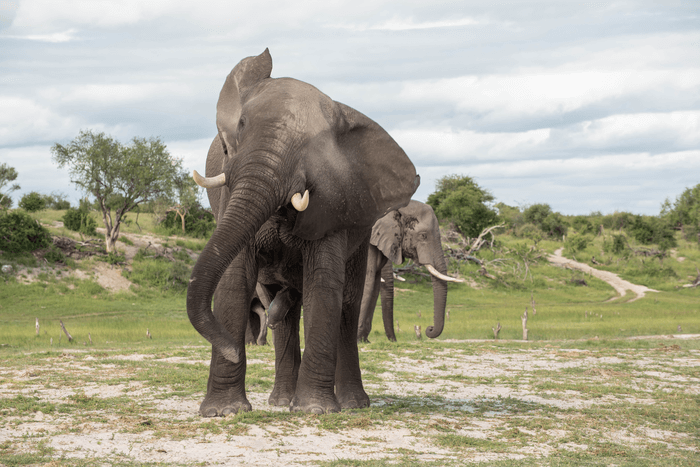
Male elephants (CREDIT: Connie Allen)
EXETER, United Kingdom — It turns out that elephants have role models too! New research from a team at the University of Exeter finds that young, immature male elephants are much more aggressive when fewer older males are nearby.
Unfortunately, hunters and poachers usually target older elephants while trophy hunting. Study authors worry that if hunting leads to more and more elephant elders dying, it could lead to a major uptick in human-elephant conflicts. Without the older elephants around to calm them down, the younger males will be more inclined to act recklessly.
The research team observed 281 male elephants living within an all-male area of Makgadikgadi Pans National Park, Botswana for three years to reach these findings. Study authors divided the animals into four groups: adolescents (10-15 and 16-20 years-old) and adults (21-25 and 26+ years-old).
“Our research draws attention to what is often a rather overlooked area in animal behavior; that of the complex relationships and connections that occur between males in non-breeding all-male societies,” says lead study author Connie Allen, of Exeter's Centre for Research in Animal Behavior, in a university release.
Youngsters more likely to attack people without an adult around

All in all, the analysis indicates that when fewer “bulls” (older, adult male elephants) were nearby, the calves (young, adolescent male elephants) were much more likely to be aggressive toward vehicles, livestock, and other species. These observations were particularly prevalent among especially young elephants, suggesting socially isolated adolescent elephants may represent a more serious threat to people.
“It appears the presence of more knowledgeable, older elephants in groups may play a key role in keeping the younger, less experienced males calm and lowering their perception of their current threat level, which means there’s less risk of aggression towards humans and other species,” Allen continues. “Alternatively, older bulls may police other males aggression directed toward non-elephant targets.”
“Old male bull elephants are often thought of as redundant and are targeted for trophy hunting,” adds Professor Darren Croft.
“These new results highlight the important role that old male elephants can play in shaping the behavior of younger males, which are more aggressive in the absence of old bulls - including towards vehicles. These findings provide an important message for wildlife managers and suggest that the removal of old male elephants from populations could lead to an increase in human-wildlife conflict.”
The findings appear in the journal Proceedings of the Royal Society B Biological Sciences.










